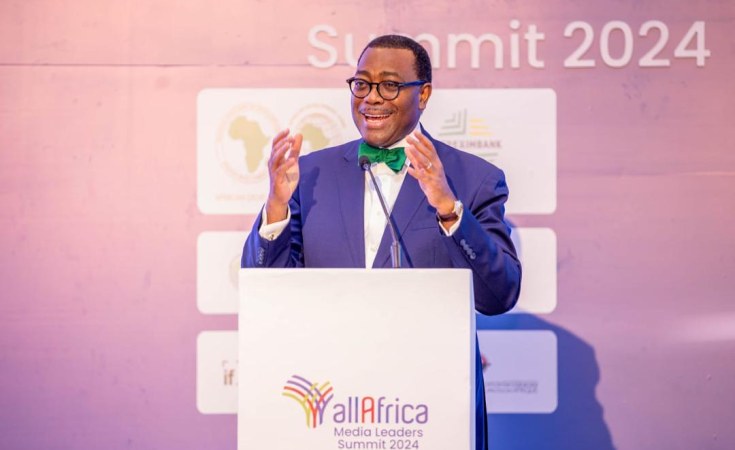In a stirring keynote address at the All Africa Media Leaders’ Summit in Nairobi, Kenya, Dr. Akinwumi A. Adesina, President of the African Development Bank Group, emphasized the crucial role of the media in shaping Africa’s narrative during times of significant transformations.
The summit convened against the backdrop of recent devastating floods in Kenya, Tanzania, Rwanda, and Burundi, which Dr. Adesina addressed with a poignant moment of silence for the victims.
Expressing his condolences to President Ruto and the people of Kenya, Dr. Adesina reaffirmed the African Development Bank’s commitment to supporting the affected regions in their recovery efforts. He highlighted the disproportionate impact of climate change on Africa, a plight exacerbated by external factors, despite the continent’s minimal contribution to global emissions.
Dr. Adesina criticized the existing media landscape for often overshadowing positive developments in Africa with a focus on negative news.
He pointed out the challenging conditions faced by the media sector post-COVID-19, which disrupted traditional business models and tested the limits of journalistic integrity and revenue generation.
The keynote also shed light on the significant digital shift affecting media consumption globally, with an emphasis on the rise of mobile and internet-based news. Dr. Adesina underscored the transformative impact of technology, particularly mobile phones, which are projected to reach 692 million users in Africa by 2030.
This shift, he noted, has democratized content creation and distribution, but also blurred the lines between fact and fiction.
Addressing the achievements of the African Development Bank, Dr. Adesina proudly referenced its sustained AAA credit rating and innovative financial initiatives, such as the recent $750 million hybrid capital issuance that was significantly oversubscribed.
These milestones, he argued, are newsworthy yet remain underreported, overshadowed by persistent negative stereotypes and biased reporting that fails to accurately represent the continent’s advancements and resilience.
Dr. Adesina proposed several initiatives to combat these challenges. These include the establishment of a globally respected African media company, funded by regional financial institutions to foster a more balanced portrayal of Africa.
He also suggested the creation of a repository of verified stories and content to reduce the search costs for positive news stories about the continent.
In concluding his address, Dr. Adesina called on the media to adopt a more developmental and positive reporting stance to inspire confidence and attract investment to the continent. He envisioned a future where African media acts as a powerful force for change, advocating for a narrative about Africa, by Africans, and reflecting the true spirit and potential of its people.
The summit will continue to explore these themes, with the African Development Bank playing a pivotal role in steering the conversation towards a more equitable and representative media landscape in Africa.

